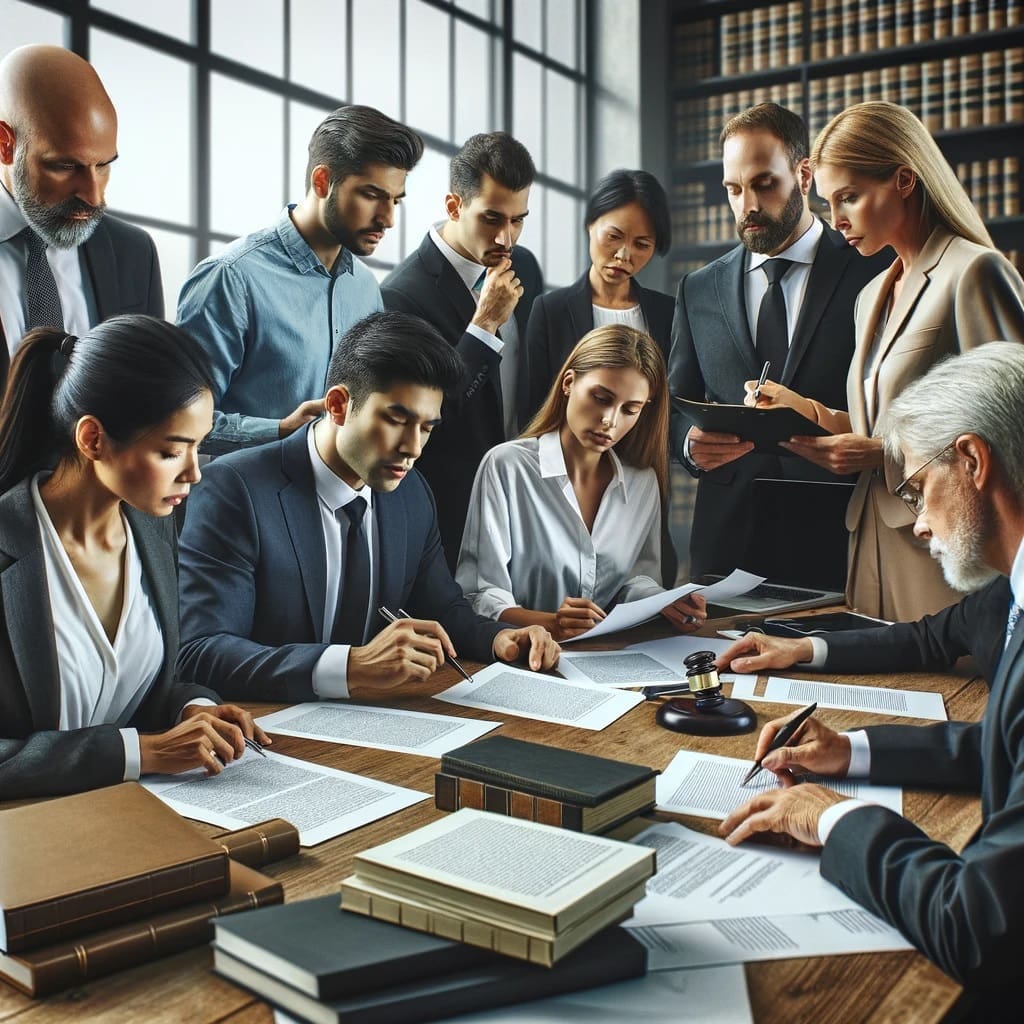Proven Document Amendment Strategies for Better Legal Results
In the complex landscape of legal documentation, the amendment of existing documents plays a crucial role in addressing ongoing and evolving legal needs. This practice is essential for ensuring that legal agreements remain relevant and enforceable as circumstances change. Amendments can involve anything from simple updates to a complete overhaul of the document’s terms and conditions.
Case Studies or Examples
One notable example of document amendment is seen in corporate law, where merger agreements are frequently updated to reflect new legal standards and business practices. For instance, in a merger agreement, amendments might be necessary to comply with newly enacted antitrust regulations or to accommodate changes in the financial projections of the involved companies. These amendments ensure that the agreement remains compliant and effective, safeguarding all parties’ interests.
Another example is in family law, where child custody agreements often require amendments. Changes in one parent’s living situation or the child’s needs can prompt a review and subsequent modification of the original custody arrangement. These amendments are vital to maintaining the child’s best interests as their circumstances change over time.
Expert Commentary
Legal experts emphasize the importance of clarity and precision in drafting amendments. According to Jane Doe, a seasoned contract attorney, “Amendments should not only address the immediate needs but also anticipate potential future changes.” She suggests that a well-crafted amendment can prevent disputes and litigation, saving parties significant time and resources.
Experts also recommend involving legal counsel in the amendment process to ensure that all changes are legally sound and effectively integrated into the existing framework of the document. This practice helps in maintaining the document’s enforceability and preventing loopholes.
Comparative Analysis
When comparing amendment practices across different legal fields, it becomes evident that the stakes and complexities vary. For example, amending a real estate lease involves different considerations than modifying a technology licensing agreement. Each field has its regulations, standards, and typical clauses that need specific attention during amendments.
In real estate, amendments might focus on terms related to property maintenance, rent adjustments, or lease duration changes. In contrast, technology agreements may require updates in response to technological advancements, changes in software licensing laws, or shifts in the intellectual property landscape.
Detailed Breakdown of Legal Consequences
The legal consequences of not properly amending documents can be severe. In business contracts, failure to timely update terms can lead to breaches of contract, financial losses, and damaged business relationships. In personal agreements, such as wills or trusts, outdated documents can lead to the misallocation of assets or prolonged legal battles among beneficiaries.
Therefore, legal professionals must thoroughly understand the potential consequences of amendments to advise their clients accurately.
Step-by-Step Guide with Visuals
A step-by-step guide to amending a legal document might include:
- Identifying the Need for Amendment: Recognize changes in law or circumstances that necessitate an amendment.
- Drafting the Amendment: Draft the necessary changes, ensuring clarity and legal soundness.
- Review and Approval: Have all parties review the amendment. Legal counsel should verify its compliance with existing laws.
- Execution: Execute the amendment through the appropriate legal processes, which may include notarization or witness signatures.
Visual aids, like flowcharts or diagrams, can be extremely helpful in illustrating these steps, making the amendment process more understandable and accessible.
Technology and Tools
Modern legal practices utilize various technologies and tools to streamline the amendment process. Document management systems, digital signatures, and legal drafting software are crucial in ensuring efficient, accurate, and secure amendments. These tools also facilitate compliance tracking and version control, crucial aspects of legal document management.
Interactive Elements
Interactive elements, such as web-based forms and templates, can aid significantly in the document amendment process. These tools offer customizable options for common amendments, ensuring that users can adapt their documents to changing needs without starting from scratch each time.
FAQ Section
Q: When is a legal document amendment necessary? A: Amendments are necessary when changes in law, business practices, or personal circumstances occur that affect the terms of the original agreement.
Q: Can any part of a legal document be amended? A: Yes, but amendments must be made with the consent of all parties and in accordance with applicable laws.
Q: How do I ensure my document’s amendment is legally binding? A: Involve legal counsel in the drafting and execution process to ensure compliance with laws and proper integration into the existing document.
Legislative Changes and Trends
Recent legislative changes often drive the need for amendments. For example, updates in data protection laws such as GDPR have prompted businesses worldwide to amend their privacy policies and contractual terms to ensure compliance.
Staying informed about these trends is essential for legal professionals and the parties they represent, ensuring that all legal documents are up-to-date and enforceable.
Ethical Considerations
The ethical implications of document amendments are significant. Legal professionals must ensure that amendments are not only legally compliant but also fair and just. Transparency, consent, and respect for the rights of all parties involved are paramount in this process.
In conclusion, amending legal documents is a critical practice that requires attention to detail, foresight, and comprehensive legal knowledge. By adhering to best practices, utilizing modern tools, and considering ethical implications, legal professionals can ensure that amendments achieve their intended purposes while safeguarding the interests of all parties involved.
- 7 Essential Best Practices for Drafting Contract Amendments
- Contract Amendments 101 | Ironclad
- The Ultimate Guide to Contract Amendments: What You Need to Know
- Contract Modification: Legal Requirements & Best Practices
- 9 Effective Proofreading and Editing Strategies for Attorneys















